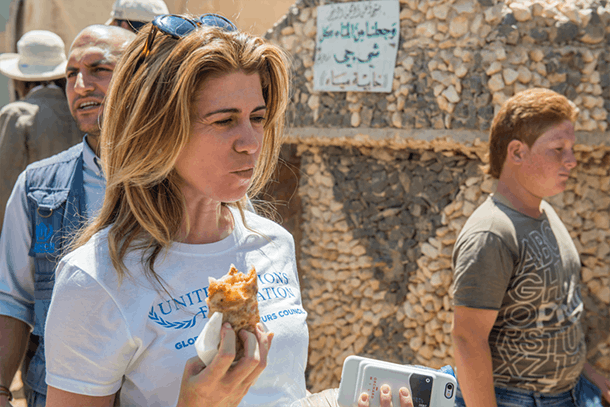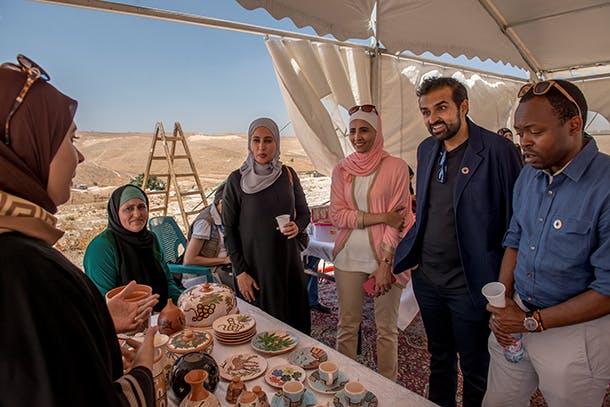Over several days in mid-August, members of the United Nations Foundation’s Global Entrepreneurs Council (GEC) had the extraordinary opportunity to visit Sweden and Jordan to experience firsthand how United Nations agencies, civil society groups, and private sector stakeholders are supporting refugees and entrepreneurs through skills training, mentoring, and education. As leaders in the private sector, I believe we have a unique opportunity to assist vulnerable populations – particularly women and girls, youth, and refugees – in their pursuit of building a better future.
In Sweden, we met with organizations and tech innovators committed to supporting newly arriving refugees with the tools to find jobs and comfortably integrate into Swedish society. We consistently heard from refugees and employers alike that one of the biggest hurdles facing refugees looking for employment was the ability to make personal connections with local Swedes who could help facilitate contacts for job interviews. New initiatives such as Oppna Dorren (Open Door) and WelcomeApp are innovative platforms that help refugees connect with locals and ultimately find jobs. It’s exciting to see these creative ideas develop into real, meaningful solutions.
In Jordan, we met so many incredible aspiring entrepreneurs, who are being supported by UN agencies such as the UN Refugee Agency (UNHCR) and the UN Development Programme (UNDP). In the Za’atari refugee camp run by UNHCR, we saw shops selling everything from bicycles, to pizza and falafel, to furniture.These shops show the innate entrepreneurial spirit that exists within these refugees.

Photo: Anton Demerjian for UN Foundation
We were also lucky enough to meet with women entrepreneurs supported by UNDP’s Emergency Employment Program, which has helped Jordanian women turn their business ideas – whether for a dairy, craft or pottery shop – into a reality. Seeing how proud these women are of their businesses and how they have positively impacted their families and surrounding communities shows just how important UN programs like these are in supporting the livelihoods of women entrepreneurs. One woman told us that, as a result of UNDP’s program, she’s challenged local norms for women-run businesses in her region and found a “renewed passion for life” through her business.

Photo: Anton Demerjian for UN Foundation
As a former refugee and a businessman, I am acutely aware of the challenging circumstances refugees and entrepreneurs face. I also know the innate entrepreneurial spirit that exists in anyone who has been forced to flee their home or start their own business to simply put food on the table. While every refugees’ or entrepreneurs’ experience is not the same, I know what it means to lose everything and what it means to start an idea from scratch.
This trip deepened our belief that the private sector is uniquely positioned to work in conjunction with the UN to support vulnerable populations through entrepreneurship. Cultivating impactful and effective cross-sector partnerships is key to sustainable livelihoods. GEC member Anna Ryott expressed throughout our time in Sweden and Jordan that “partnership is the new leadership”. She’s right. The private sector has a critical role to play harnessing this entrepreneurial spirit and propelling forward the lives of millions of refugees and aspiring entrepreneurs.



 View All Blog Posts
View All Blog Posts